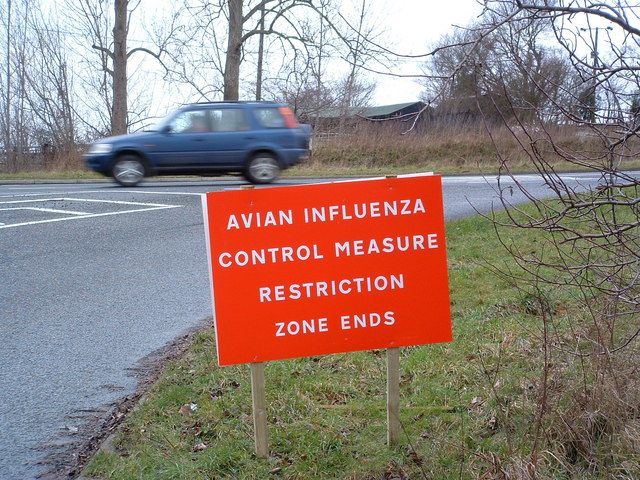
The UK government has given out fresh advice following the news of the Netherlands issuing out a Poultry Housing Order because of a confirmed bird flu outbreak.
Bird flu is not currently present in the UK but it is present in Europe. As winter approaches, the risk of bird flu in the UK is likely to increase.
The Netherlands have issued a Poultry Housing Order after a confirmed outbreak of the H5 strain of avian influenza on a duck farm.
Following this news, the Animal and Plant Health Agency (APHA) have announced that they will issue a new UK bird flu assessment on Monday (11 December).
The government currently regards the risk of bird flu occurring in the UK as medium in wild birds, and low in poultry, provided there’s a good standard of biosecurity.
This is because the wild bird migration season is underway, bringing birds to the UK from areas where experts know the highly pathogenic H5N8 strain of bird flu is present.
There have been recent bird flu cases in poultry and wild birds in Italy, in wild birds in Germany, and in poultry in Bulgaria.
The government has reiterated that if bird flu is found on UK farms, calling the Defra Rural Services Helpline on 03000 200 301 is required. Failure to do so is an offence.
Types of bird flu
There are 2 types of avian influenza. Highly pathogenic avian influenza (HPAI) is the more serious type, and it is often fatal in birds.
The main clinical signs of HPAI in birds are: swollen head; blue discolouration of neck and throat; loss of appetite; respiratory distress such as gaping beak, coughing, sneezing, gurgling, rattling; diarrhoea; fewer eggs laid; increased mortality
Clinical signs can vary between species of bird and some species, for example ducks and geese, may show minimal clinical signs.
Low pathogenic avian influenza (LPAI) is usually less serious. It can cause mild breathing problems, but affected birds will not always show clear signs of infection.
The severity of LPAI depends on the type of bird and whether it has any other illnesses.
Prompt advice
Anyone who keeps poultry must keep a close watch on them for any signs of disease, and must seek prompt advice from their vet if they have any concerns.
The disease spreads from bird to bird by direct contact or through contaminated body fluids and faeces. It can also be spread by contaminated feed and water or by dirty vehicles, clothing and footwear.
The avian influenza virus changes frequently, creating new strains, and there is a constant risk that one of the new strains may spread easily among people. But there is no evidence that any recent strain of avian influenza has been able to spread directly between people.
Avian influenza isn’t an airborne disease. Public Health England advise the risk to public health from the H5N8 strain of bird flu is very low.
If you find dead wild waterfowl (swans, geese or ducks) or other dead wild birds, such as gulls or birds of prey, you should report them to the Defra helpline (03459 33 55 77).
This applies just as much if you only have a few birds as pets, or if you have a large commercial flock. An outbreak of bird flu in back garden chickens results in the same restrictions on movement of birds. It has the same impact on farmers and trade in poultry as an outbreak on a commercial farm.
Good biosecurity
Poultry keepers are urged to take action to reduce the risk of disease in flocks by following government advice on biosecurity:
• Minimise movement in and out of bird enclosures
• Clean footwear before and after visiting birds, using a Defra approved disinfectant at entrances and exits
• Clean and disinfect vehicles and equipment that have come into contact with poultry
• Keep areas where birds live clean and tidy, and regularly disinfect hard surfaces such as paths and walkways
• Humanely control rats and mice
• Place birds’ food and water in fully enclosed areas protected from wild birds, and remove any spilled feed
• Keep birds separate from wildlife and wild waterfowl by putting suitable fencing around outdoor areas they access
• Keep a close watch on birds for any signs of disease and report any very sick birds or unexplained deaths to your vet
